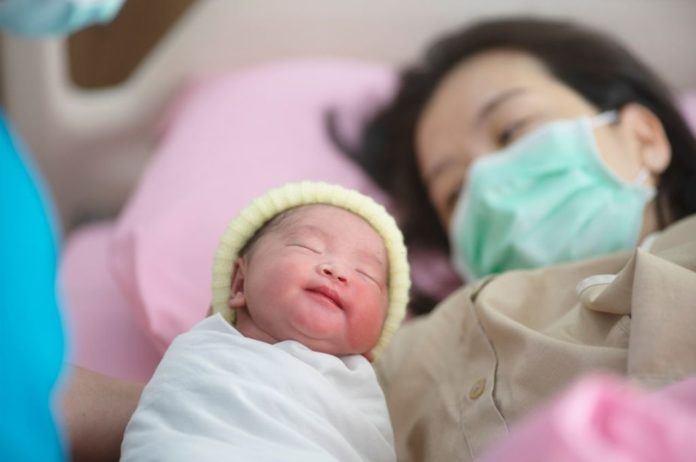Following the spread of SARS-CoV-2, many studies were conducted to study the innate and adaptive immune responses to viral infection and vaccination in various clinical populations. However, the majority of these investigations omitted lactating and pregnant women, who were a particularly vulnerable group for severe COVID-19 infections. Moreover, expectant mothers weren’t included in clinical trials that resulted to the authorization of the mRNA-1273(Moderna VAccine) and BNT162b2(Pfizer vaccine) covid vaccines.
A review published in Science Translational Medicine highlighted two recently published research that evaluated pregnant women’s responses to common infections and COVID-19 vaccinations. It also contributed in demonstrating antibody responses to infection and vaccination in pregnant and breastfeeding women.
Pregnancy: an immunological state
Pregnancy is a different biological process in which a balance of immunotolerance to the fetus is achieved, further protecting the pregnant woman from infectious illnesses. The balancing act is simple since both mother and father factors, such as the placenta, can affect the immune system. The placenta is a fetal organ that can be female or male in origin.
In pregnant women, numerous systemic alterations in innate and adaptive immunity occur, making them more susceptible to viruses and SARS-CoV-2. However, timely vaccination can protect pregnant women directly and the fetus indirectly through antibody transfer.
Passive antibody transfer happens via the placenta and breastmilk, providing the infant with functional immunoglobulin (Ig). Maternal IgG is transmitted to the fetus through attaching to the Fc-domain receptors (FcRs) on the surface of the placenta’s syncytiotrophoblast cell layer. The amount of antibody transmitted is determined by differential glycation of the antibody Fc-domain. Mothers also transfer IgA-isotype antibodies through breastmilk after parturition.
When maternal antibodies reach the neonatal circulation, they can coordinate a variety of immunological responses, including antigen neutralization, non-neutralization, and cell-mediated actions. Natural infection, as well as preventative vaccination, generate a wide range of antibody responses. As a result, depending on the method of antigen exposure, the resulting antibodies may differ. These variations, in turn, can influence the functional nature of the antibodies, as well as their ability to be delivered to the unborn and biological function.
Pregnancy and SARS-CoV-2 Vaccination
One of the research used a systems serology technique to profile anti-SARS-CoV-2 antibodies in the sera of pregnant, non-pregnant, and lactating women after they received mRNA-1273 or BNT162b2 COVID-19 vaccines. Pregnant women had lower SARS-CoV-2 antibody titers, restricted IgG subclass responses, and a reduced FcR binding capacity following the first dose of the vaccination than non-pregnant women. However, following the second dose, there were only minor differences between pregnant and lactating women and non-pregnant women. Increased natural killer (NK) cell-activating antibodies were only found in lactating women after the second dose of vaccination.
Furthermore, in pregnant women, reactions to each mRNA vaccine formulation differed. Immune responses to the Moderna vaccine were enriched for neutrophil and NK cell-recruiting antibodies. In the case of the Pfizer vaccine, however, they were selected for less specific IgG1 and FcRIIIa-binding antibodies.
In terms of passive immunity, mother sera contained more SARS-CoV-2 antibodies than cord sera. This decrease in the transfer was most likely caused by immunization at a later stage of pregnancy. This decrease in transfer may also be attributed to a reduced abundance of FcRIIIa-binding antibodies in pregnant women. However, after immunization, stronger antibodies with greater functional and FcR-binding characteristics were detected in nursing mothers.
Maternal immunity and COVID-19 infection
The other study looked into the antibody and antiviral interferon responses in COVID-19 infected and uninfected pregnant women, as well as whether the fetus’s gender affected these responses. Anti-SARS-CoV-2 antibody titers, as well as functions and specificities, were measured in maternal and cord blood sera from pregnancies with female and male fetuses to investigate the effect of fetus sex on the antibody response.
The findings revealed that moms carrying male fetuses had lower IgG antibody titers for all SARS-CoV-2 specific antigens. This implies that the fetal sex influences maternal antibody responses. Furthermore, the transfer ratio of SARS-CoV-2 antibodies in cord blood was lower in male fetuses than in female pregnancies.
In addition, placental staining and genomic studies were performed to see if there were any gender variations in placental FcR expression. In the instance of the male-derived placenta, the data showed higher expression of FcRn, FcRII, and FcRIII, as well as greater co-localization of FcRn and FcRIII. Glycan profiling demonstrated that increased antibody titers in male pregnancies were influenced by glycosylation and fucosylation. Fucosylated antibodies are less efficiently transmitted by FcRIIIa-binding, which explains why male pregnancies have lesser IgG transfer.
Results
The investigations mentioned were very effective in identifying the antibody responses of pregnant women infected with SARS-CoV-2, as well as the effect of fetal sex on these responses. There are also direct clinical consequences for COVID-19 infection and future maternal-fetal vaccine regimens. The research also emphasized the inclusion of pregnant women at various stages of gestation in vaccine development clinical trials.
Image Credit: Getty
You were reading: How pregnant women respond to natural infections and COVID-19 vaccines
